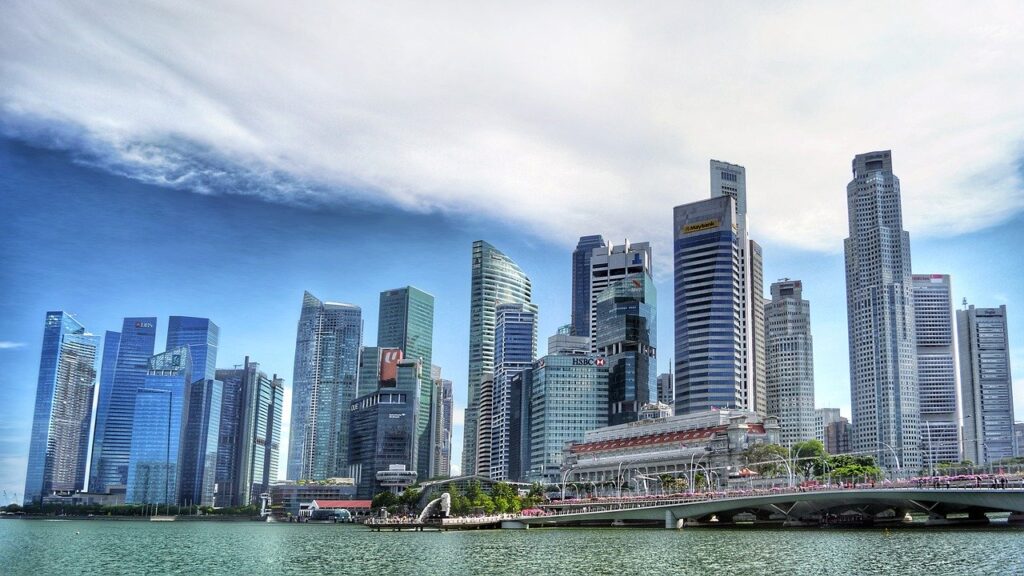

This commentary first appeared in TODAY, Singapore on 16 Oct 2013.
I think we just failed an end-of-year exam on network resilience, Singapore
My friend was returning home in a taxi last week when she texted me saying the driver had started the ride telling her that she couldn’t pay by NETS (Network Electronic Transaction Services) because there was “something wrong with the network.” He proceeded to spend the rest of the ride telling her about how he spent the day at his company’s overcrowded service centre because he thought his taxi information update system was not working, only to be told after hours of waiting that there was “something wrong with the network.”
My friend kept up an amusing running commentary of this conversation to me via text. It was just a pity that it was a one-sided conversation; I didn’t get the messages till the next day. I guess there could have been “something wrong with the network.”
Singapore’s Network Infrastructure Structure
Last week’s fire at SingTel’s Bukit Panjang Internet exchange building damaged 51 fibre optic cables, (@SingTelSupport tweet) which served OpenNet, Starhub, M1, SingTel, Nucleus One, and a number of other operators[May-Ann1] . Exchange points are an important part of network infrastructure; they are nodes where service providers (such as M1 and Starhub) interconnect and lease network lines from companies who provide the infrastructure that directly connects Singapore to the rest of the Internet. As a former state-owned enterprise, SingTel owns most of Singapore’s fixed-line network infrastructure – while also being a service provider. Unless other telcos are willing to invest the time and money to install a parallel and competing network infrastructure to run their business, they will have to lease lines from SingTel – a direct competitor who has the incentive to preserve its monopoly and discourage new telco players.
Single Point of Failure
Singapore’s network infrastructure set-up, having an incumbent (SingTel) own and lease infrastructure while still offering telco and data services, led to a single point of failure situation during last week’s fire. The damage was done to a single exchange utility belonging to SingTel, but the impact was felt by customers of other telcos on leased lines.
This system failure escalated into a large-scale outage felt all over the island, no matter what service provider you were on. Household connections such as Internet, pay TV services and digital voice calls were unavailable. Hypothetical fortunes were lost as betting services by Singapore Pools faced outages.
The breakdown went beyond telecommunication services – National Critical Information Infrastructure (CII) were affected: (1) banking and finance services on ATMs and in branches from UOB, OCBC, POSB and DBS were down; (2) public transport was limited as taxi drivers were unable to connect to their information network, and (3) telecommunication networks and health services, were slowed as a third of all SingHealth polyclinics could not access patient records stored in the cloud.
Failing a mid-term
The implications of the breakdown go further than consumers being unable to connect to their favourite social media website or place a bet. One of the purported objectives surrounding the invention of the Internet was to allow continued information exchange even after critical communication infrastructure is destroyed in the event of a nuclear war. If a single fire in a private company’s facility can cause five days’ service disruption[1] in Singapore, it calls into question the resilience of Singapore’s CII. Further, it calls into question Singapore’s hard-won reputation as a hub of hubs: a central locale for the world to connect with, in order to connect to other hubs in the region.
Policy-Refining Fire
Policy plans, such as the Infocomm Media Masterplan and the National Cyber Security Masterplan 2018, are being discussed to ready the country for the next technology wave. Recently, Infocomm policies have been passed or updated: the Personal Data Protection Act (PDPA) was passed in Nov 2012, and the Computer Misuse Act (1993) was updated in March this year. G-Cloud (government cloud) infrastructure has been rolled out so that Singapore’s e-government services can leverage the power of cloud computing services and platforms. IPv6 adoption has been encouraged to support the coming Internet of Things, where everyday devices from phones to refrigerators have an IP address.
While much of the regulatory environment in Singapore is readying itself for the web 3.0, the Bukit Panjang fire has illuminated an important weakness in Singapore’s infrastructural setup. At the time of writing, SingTel has not fully restored all connections damaged during the fire – Starhub and M1 still have circuits down, calling into question SingTel’s prioritization in circuit restoration. The question is: will we repeat our mistakes? We may be about to build the same flaw into Singapore’s Next-Generation Nationwide Broadband Network (NGNBN), if SingTel, OpenNet and CityNet consolidate into a business trust that is owned by SingTel. A coalition of telcos comprising Asia Pacific Carriers’ Coalition, M1, MyRepublic, Nucleus Connect, StarHub, SuperInternet, and ViewQwest, have opposed the consolidation in a public consultation response paper available online.
As the regulators review the fire and telcos compensate for service failures, we should use the lessons of the fire to inform the refinement of our regulatory environment.
Lim May-Ann is the Research Director of TRPC and Chair of Public Policy and Regulation with the Asia Cloud Computing Association